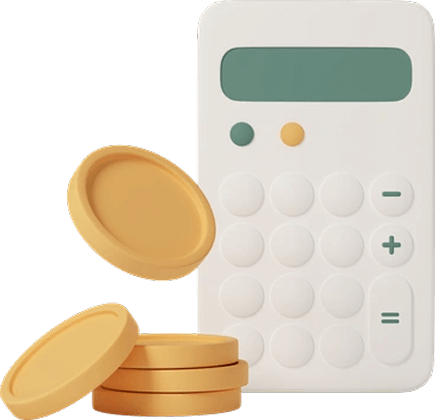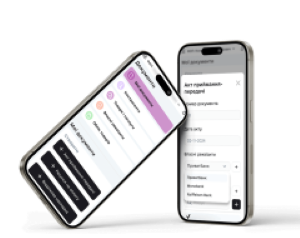Content
- Introduction
- What does running a sole proprietorship include?
- Accounting for individual entrepreneurs: what does the law say?
- How to keep accounting for a sole proprietorship?
- When does a sole proprietor need an accountant?
- Self-accounting — benefits for sole proprietors
- How do digital services help sole proprietors keep their accounting?
Organization of accounting is one of the key tasks that sole proprietors face at the beginning of their business. Does a sole proprietorship need an accountant or can it keep records on its own? Let`s talk about this in the article.
What does running a sole proprietorship include?
To optimize its operations and comply with the law, a sole proprietor on the simplified taxation system must control the following processes:
- Ensure that the level of income does not exceed the limits set for the sole proprietorship group.
- Provide reports on the calculation of the Single Tax (sole proprietors of group 2 — once a year, sole proprietors of group 3 — once a quarter).
- Pay the Single Tax (group 2 sole proprietors – monthly, group 3 sole proprietors – quarterly).
- Pay a single social contribution once a quarter. For the period of martial law, sole proprietors are exempt from paying the Single Social Contribution, but may do so voluntarily.
- In 2-3 days after paying taxes, check in the e-cabinet to see if the taxes have been credited to the budget. Errors (payment to the wrong account, technical failures) can lead to blocking of the sole proprietor’s accounts.
- If the sole proprietor has another sole proprietor as a supplier or service provider, submit a 4DF report to the tax service every quarter.
- Maintain personnel records if the sole proprietorship has employees. During martial law, you also need to keep military records.
- Calculate and pay salaries to employees twice a month, and pay payroll taxes.
- If an employee falls ill, accrue sick leave. If the period of sick leave exceeds 5 days, submit certificates to the Pension Fund.
- If a sole proprietor sells goods, issue checks for all payments using a cash register or a software cash register and control the correctness of filling in the details. If a sole proprietor sells goods of risky groups, he or she must keep inventory records.
- If the sole proprietor has business partners — other sole proprietors or legal entities — to conduct document flow with them: to conclude contracts, issue invoices, and draw up acts of work performed.
- Make timely changes to the sole proprietorship’s registration data: add KVEDs, change the address of the place of business, etc.
A sole proprietor on the general system must:
- Annually submit a tax return on property and income to the State Tax Service. It includes:
- Appendix ESV 1 (report on accrued and paid single social contribution);
- Appendix F2 (calculation of personal income tax and military duty);
- Appendix MPZ (calculation of the minimum tax liability for sole proprietors who own or use agricultural land).
- Submit tax reports to the State Tax Service for employees, if any.
- Keep records and pay taxes in accordance with the types of activities engaged in by the sole proprietorship.
Some of these processes can be simplified with the help of digital services. In particular, they can help an entrepreneur maintain document flow with partners and personnel records, fiscalize payments, issue electronic checks, etc.
![]() To solve tasks related to accounting and tax reporting, a sole proprietorship needs an accountant.
To solve tasks related to accounting and tax reporting, a sole proprietorship needs an accountant.
An entrepreneur can hire an accountant in-house (if the taxation system and the sole proprietorship group allow it) or consider the following alternatives:
- use the services of an outsourced accountant;
- to keep accounting records on their own;
- to automate accounting operations using digital services.
A sole proprietor chooses the optimal form of cooperation based on the specifics of his or her business. If they scale up their business or open new areas, they may change the form of accounting. For example, they can switch from self-management to hiring an accountant or automating processes.

Accounting for individual entrepreneurs: what does the law say?
Ukrainian law does not oblige either sole proprietors or legal entities to hire an accountant. It is also not necessary to use the services of an outsourced accountant.
At the same time, tax legislation sets income limits for sole proprietors of the simplified taxation system. To comply with them, entrepreneurs must keep records of income. The form of accounting can be arbitrary. In particular, sole proprietors of groups 1 and 2 of the single tax system can keep a book of income, and those of group 3 can keep a book of income and expenses. This does not require any special knowledge or skills.
How to keep accounting for a sole proprietorship?
The specifics of accounting for sole proprietorships depend on the taxation system they choose for their business and the group they are in.
In particular, sole proprietorships of groups 1 and 2 must control their income level so as not to exceed the limits established by tax law. The entrepreneur must record income in the accounting book, excluding expenses. The tax service understands the income of a sole proprietorship as gross receipts to a current account or in cash.
Sole proprietors of groups 1 and 2 may hire employees. In such cases, entrepreneurs have obligations under labor law. In particular, sole proprietors must:
- keep personnel records;
- comply with the social guarantees provided for by the Labor Code of Ukraine;
- pay wages, vacation pay, sick leave and other benefits, etc.
If an individual entrepreneur is registered as a VAT payer, he or she must additionally
- correctly calculate the VAT rate and the amount of the tax credit;
- prepare reports on the accrual and payment of VAT;
- keep records of income and expenses.
When does a sole proprietor need an accountant?
A sole proprietor needs an accountant primarily if he or she cooperates with suppliers, service providers, or hires employees. In particular, an accountant helps to solve the following tasks:
- Submission of a combined report with Annex 4 of the DF in cases where the sole proprietorship cooperates with other sole proprietorships. According to Law of Ukraine No. 4015-IX, it must be submitted monthly within 20 calendar days after the last day of the month.
The combined report and Annex 4 of the DF are quite complicated to prepare. Therefore, an individual entrepreneur who does not have sufficient experience in accounting should use the services of an accountant. Each report that is not submitted is subject to a fine of UAH 1,020. - Conclusion of contracts and execution of primary documents (acts, invoices, invoices, etc.). They are required if the sole proprietor has suppliers — other sole proprietors or legal entities.
- Payments to employees. The accountant must calculate wages in accordance with all labor laws, submit a quarterly consolidated report, calculate taxes, etc.
Self-accounting — benefits for sole proprietors
Most accounting tasks can be performed by sole proprietors on their own. In particular, the website of the State Tax Service provides detailed information on how to properly fill out reporting documents.
Digital services provide additional opportunities for independent accounting for sole proprietors. A sole proprietorship can pay taxes quickly and conveniently using online banking.
How do digital services help sole proprietors keep their accounting?
Digital services help sole proprietors automate routine processes related to tax reporting. For example, using the Vchasno.Zvit service, you can:

- send all the necessary documents and reports to the tax service online;
- calculate taxes;
- check KVEDs;
- register trademarks online;
- manage several sole proprietorships in one office at the same time.
The service is well suited for both start-ups and established businesses. Automated accounting and document management help entrepreneurs to set up accounting, control finances, and simplify taxation processes. The notifications that the sole proprietor receives in the workspace allow them to submit reporting documents on time.
Vchasno.Zvit integrates with Privat24 and Monobank banking services. This allows you to control tax payments, meet deadlines, and avoid fines.






